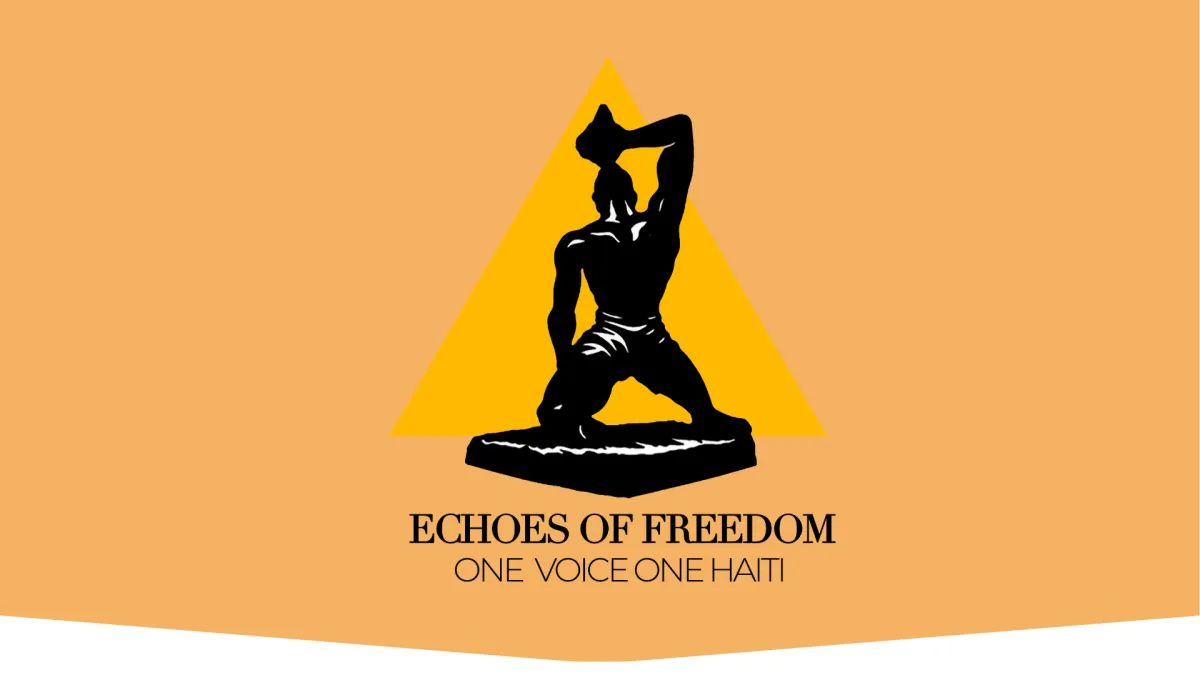Echoes of Freedom:
Reclaiming the Haitian National Anthem
Join us in reclaiming our narrative, dismantling the chains of ignorance, and forging a new path forward through the powerful legacy of the Haitian National Anthem.
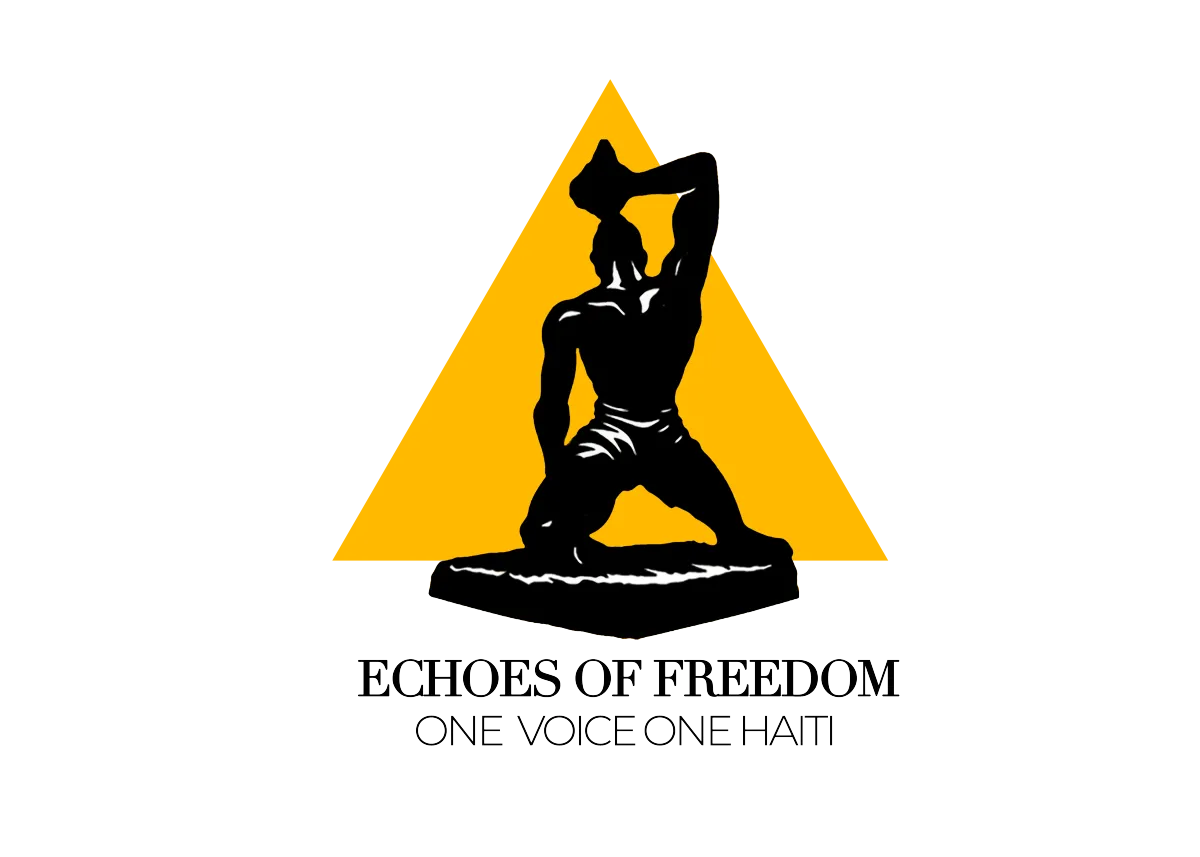
Project Overview
The "Echoes of Freedom" is a visionary initiative dedicated to the reclamation and celebration of Haiti's national anthem, written by Raymond Moïse in "Our Mother Tongue" and popularized by Ansy Derose.
Our mission is to empower the Haitian community, its inheritors, particularly the younger generation, to engage deeply with their cultural heritage, and to show up not as a superficial symbol, but to make meaningful connections between historical understanding, civic pride, music appreciation, identity, and purpose.
We aim to highlight Moïse perspective, which represents the voice of the people as an enduring symbol of tenacity and unity.
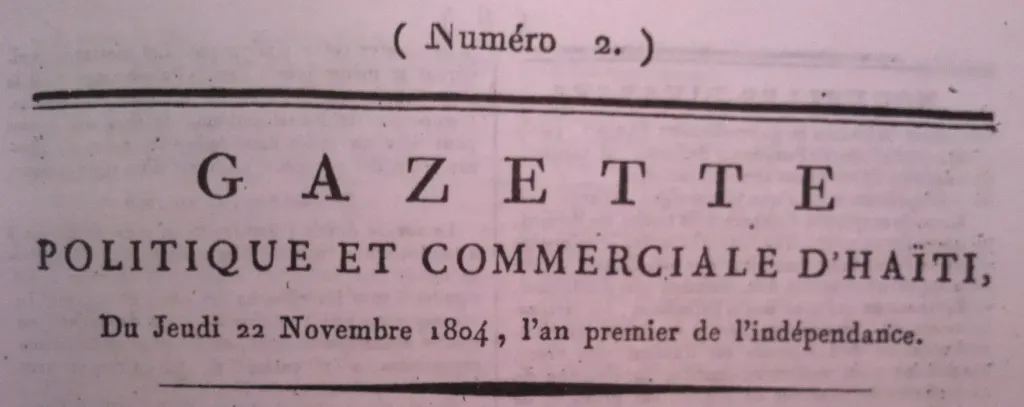
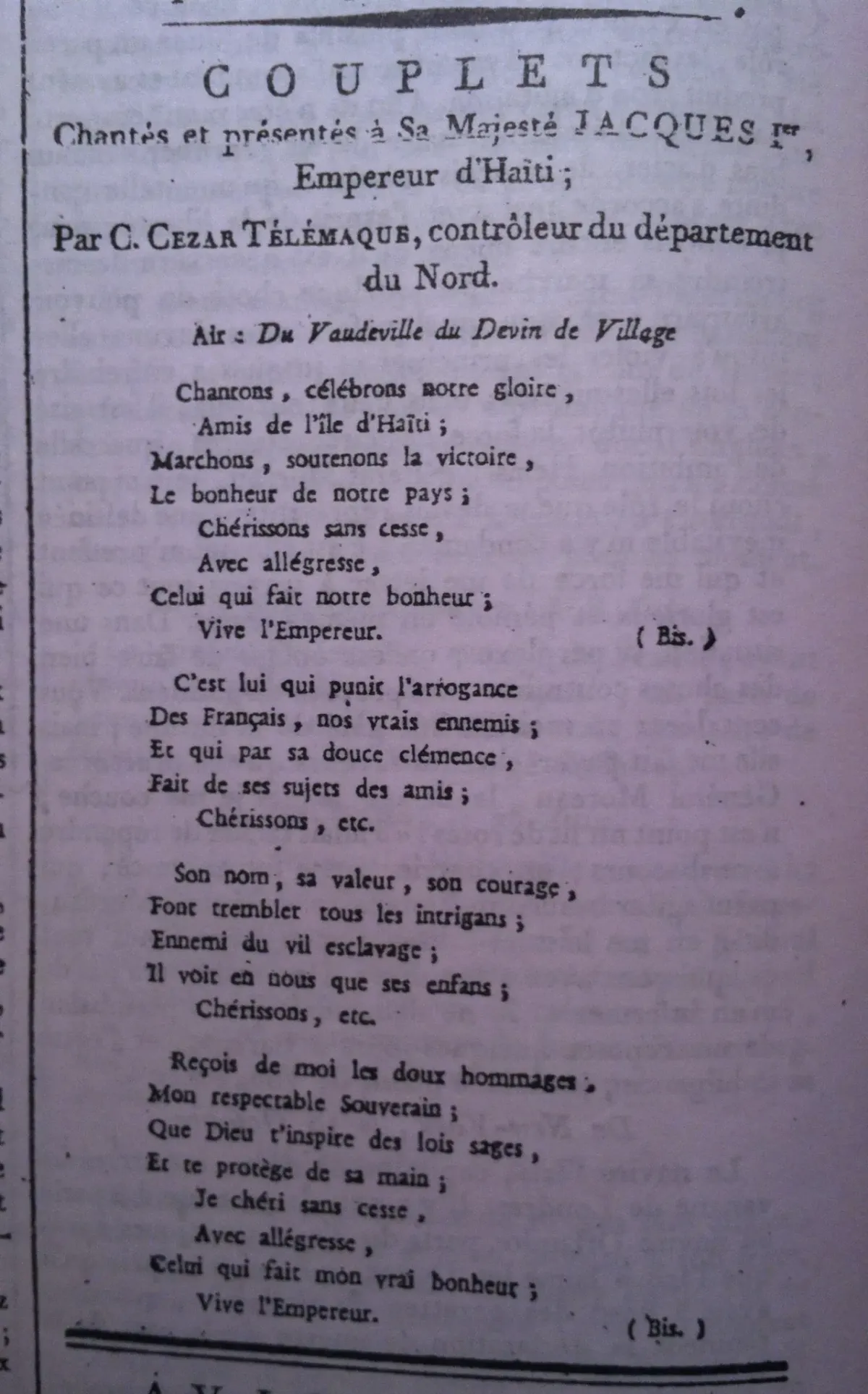
Credit:"Haitian and the Atlantic World. Haiti and the Atlantic World: Sources and Resources. URL:
1
https://haitidoi.com/2013/03/23/couplets-for-emperor-jacques-1er/
2
https://haitidoi.com/2013/03/23/hymne-haitiene/
Accessed: April 30, 2025."1
Did you know Haiti once sang to the tune of the Marseillaise?
Haiti Sang the tune...
Before Haiti had an official national anthem, we sang hymns and couplets—powerful verses that carried hope, struggle, and national pride. Between 1791 and 1803
Between 1791 and 1803, as enslaved African people in Saint-Domingue rose against the French colonial regime, they sang their aspirations to the stirring melody of "La Marseillaise," the French revolutionary anthem. These early hymns laid the spiritual foundation for freedom long before the Republic itself was born.
Hymne Haïtien
One of the earliest known Haitian patriotic songs — the “Hymne Haïtien” — was reportedly composed and sung for Dessalines for the first time on 21 January 1804, just weeks after independence was declared. It was discovered in the British National Archives, accompanied by a pamphlet version of Haiti’s Declaration of Independence. A handwritten note by Edward Corbet, British Agent for Affairs in Saint-Domingue, confirms it was set to the Marseillaise.
Its message was clear: Only under the leadership of Jean-Jacques Dessalines, the "father of the nation," could Haiti remain free and independent. That theme — unity, sovereignty, and devotion to Dessalines — was echoed again in the Couplets performed for Emperor Jacques I in November 1804
The Birth of La Dessalinienne and the People Voice
It wasn't until 1904, on the centenary of Haiti’s independence, that a formal national anthem was composed. “La Dessalinienne”, written by Justin Lhérisson and composed by Nicolas Geffrard, was chosen as the official anthem. However, for much of the 20th century, it remained inaccessible to the people, particularly many Haitians, who spoke only Haitian (Kreyòl).
That changed in the early 1980s, when Raymond Moïse, a poet and cultural visionary, rewrote La Dessalinienne in Haitian Kreyòl — the mother tongue of the Haitian people. This version returned the anthem to the people, expressing the same revolutionary spirit in a voice they could claim as their own. When Ansy Dérose, a beloved Haitian singer, performed Moïse’s version, it spread like fire — reviving national pride and reminding Haitians of their revolutionary origins.
I
Pou Ayiti
Peyi Zansèt yo
Se pou n mache
Men nan lamen
Nan mitan n pa fèt pou gen trèt
Nou fèt pou n sèl mèt tè nou.
Annou mache men nan lamen
Pou Ayiti ka vin pi bèl
Annou, annou met tèt ansanm
Pou Ayiti onon tout zansèt yo.
II
Pou Ayiti
Ak pou Zansèt yo
Fò nou kapab
Vanyan gason ak Vanyan Fanm
Moun pa fèt pou ret ak moun
Se sa k fè tout manman ak tout papa
Dwe pou voye timoun lekòl
Pou yo aprann, pou yo konnen
Sa Sesil Tousen, Desalin, Toya
Te fè pou wet Ayisyen anba kòd blan.
III
Pou Ayiti
Onon Zansèt yo
Sepou n sekle
Se pou n plante
Se nan tè tout fòs nou chita
Se li k ba nou manje
Ann bite tè, ann voye wou
Ak kè kontan, fòk tè a bay
Sekle, wouze, fanm kou gason
Pou n rive viv ak sèl fòs ponyèt nou.
IV
Pou Ayiti
Onon Zansèt yo
Ann leve tèt
Nou gad anlè
Pou tout moun mande Granmèt la
Pou l ba nou pwoteksyon
Pou move zanj pa detounen n
Pou ka mache nan bon chimen
Pou libète ka libète
Fòk lajistis blayi sou peyi a!
V
Nou gen drapo
Tankou tout pèp
Se pou n renmen l
Mouri pou li
Se pa kado blan te fè nou
Se san Zansèt nou yo ki te koule
Pou nou kenbe drapo nou wo
Se pou n travay met tèt ansanm
Pou lòt peyi ka respekte l
Drapo sila a se nanm tout Ayisyen.
We are uniting organizations across Haiti and the African diaspora to honor the powerful legacy and contributions of Haitians in the fight for freedom, justice, and literacy.
It is time for us, Haitian Inheritors, to embrace and understand our rich history, and one powerful way to do this is through Raymond Moïse's version of the National Haitian Anthem.
His rendition amplifies "Our Mother Tongue", the voice of the people, embedding their spirit and tenacity into the anthem that unites us all.
Join us in celebrating our history, reclaiming our anthem, and honoring those who paved the way for our future.
Your voice, your story, your presence matter!!

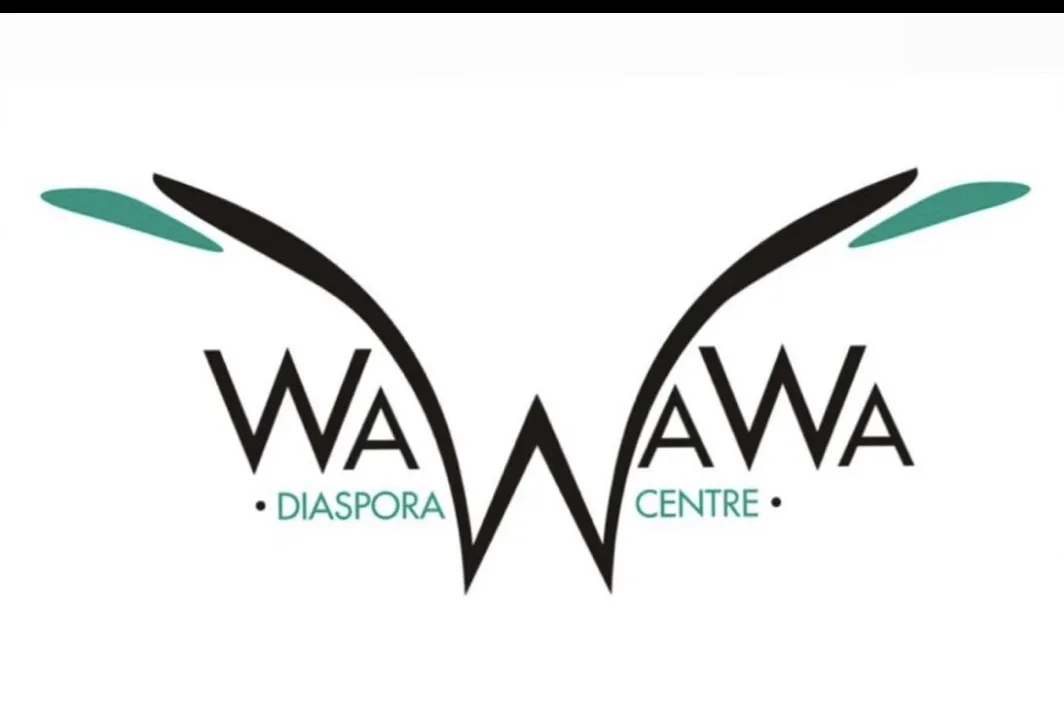




Workshops
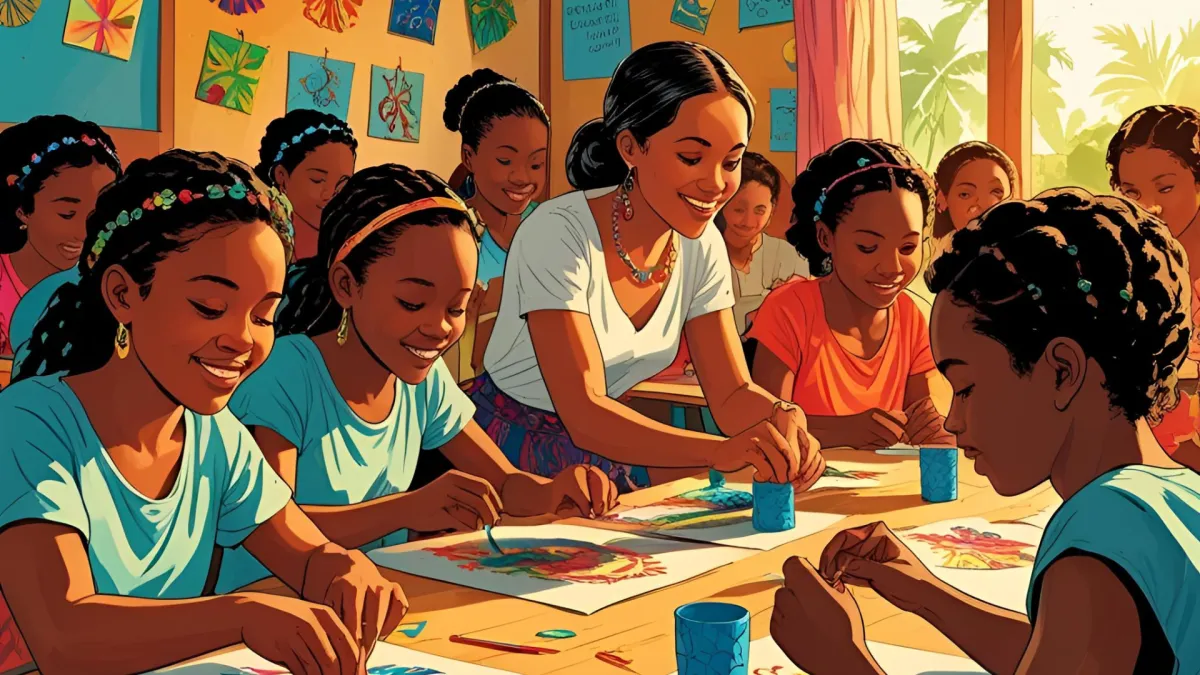
Session 1
Sister's Uptown Bookstore
1942 Amsterdam Ave, NY, NY 10032
Join Us on Monday's
Session 1. July 31, 2025 3:00 PM-6:00 PM
Session 2. August 04, 2025 3:00PM to 6:00 PM
Session 3. TBA

Session 2
Anba Tonel
1407 Flatbush Ave, Brooklyn, NY 11210
Join Us on Thursday's
Session 1. July 31, 2025 4:00 PM-6:30 PM
Session 2. August 7, 2025 4:00 PM to 6:30 PM
Session 3. TBA
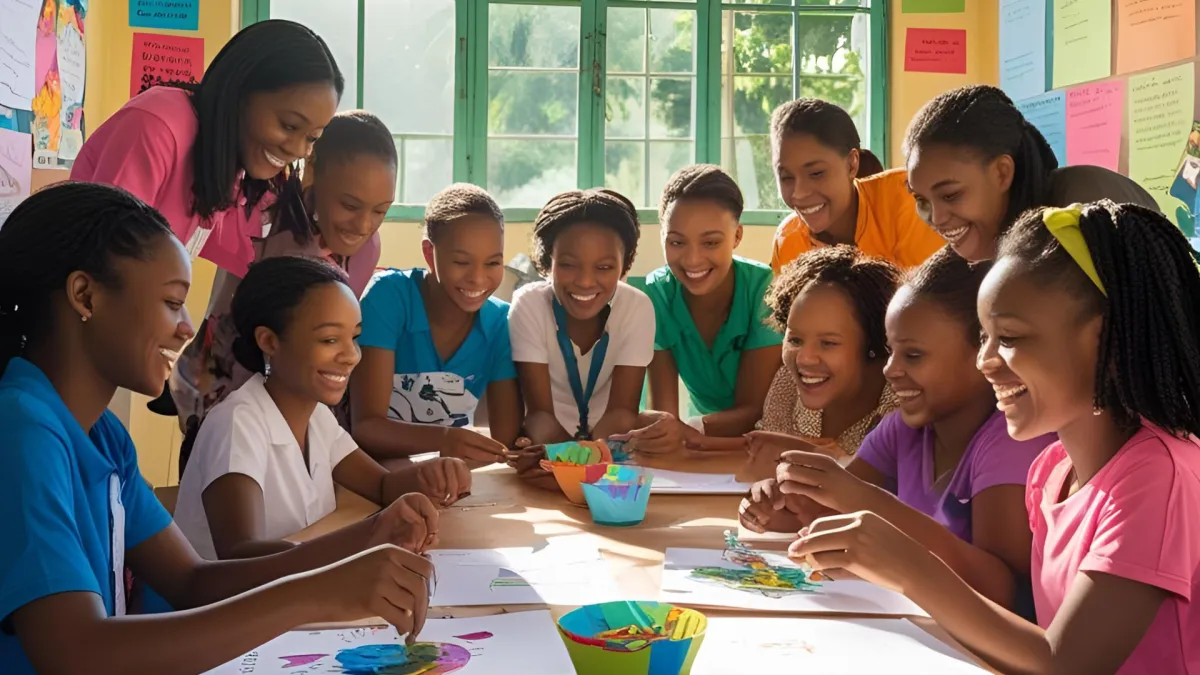
Session 3
Community Partnership -Call to Action Headline
The Rasanblaj
Haitian on the Hampton August 9th 1 PM-10 PM
Session 2. TBA
Session 3. TBA
Guiding Principles:
Echoes of Freedom
Cultural Preservation
Creative Expression as Reflection
Embodied Learning
Healing Through Heritage
YouTube / Live Stream
Haitian in the Hampton
YYYYY
August 09, 2025
Team
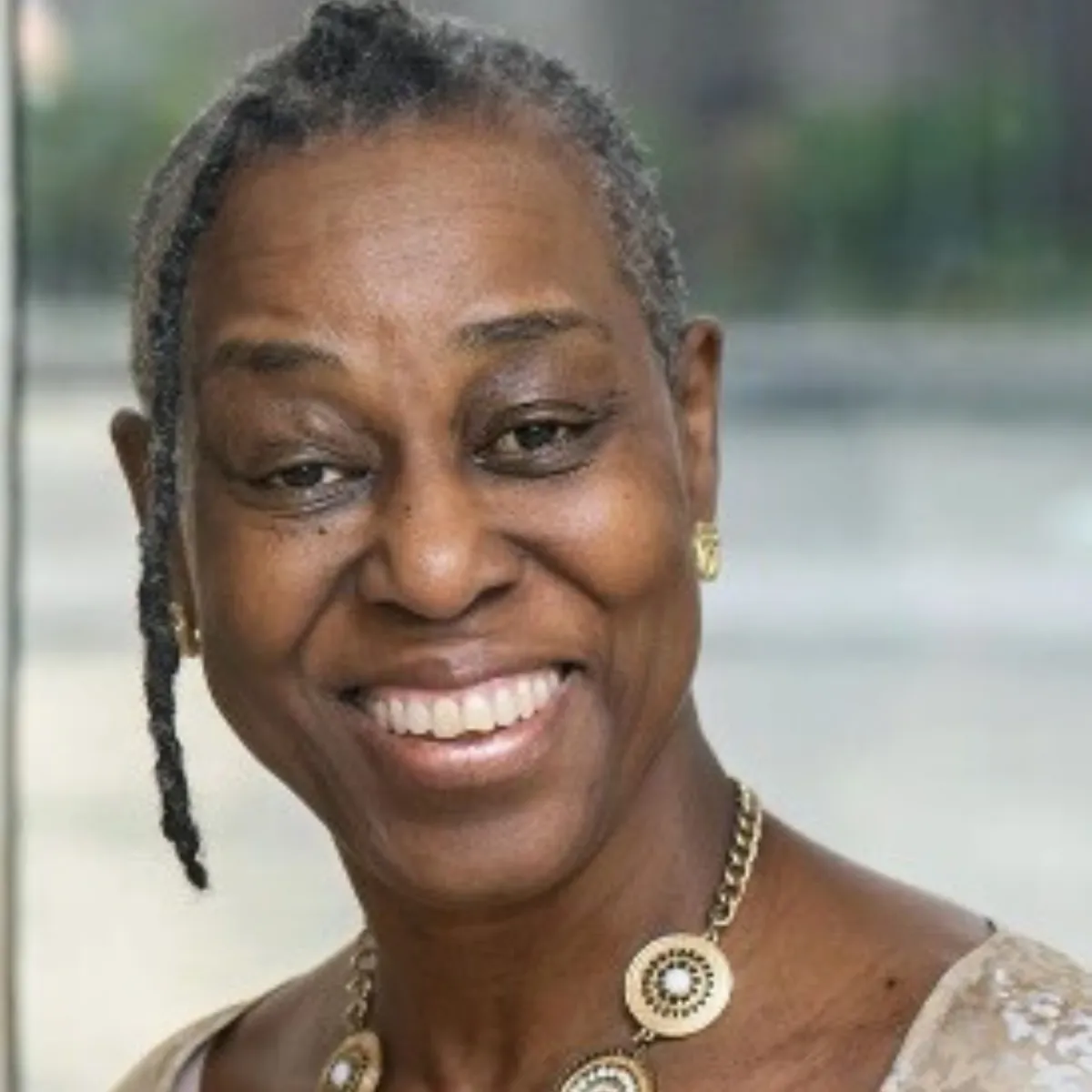
Dr. Yaa Elombe
Team Elder

Tammy Cantave
Seer

Francoise Deristel-Leger
Team player

Harmony Divine
Furturist
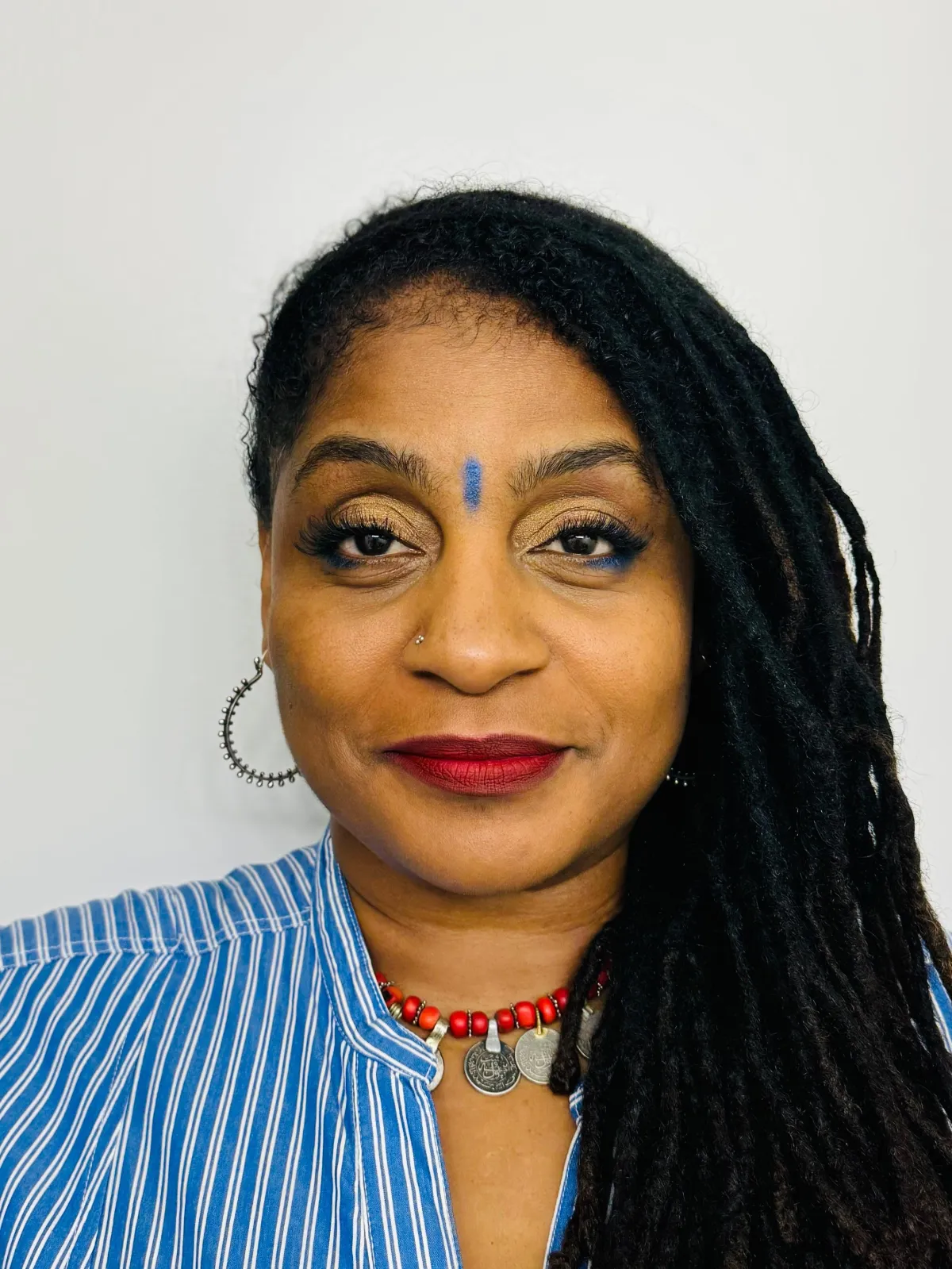
Régine Romain
Team Leader-Seer-

Farahly Saint-Louis
Futurist

Dr. Yaa Elombe
Team Leader
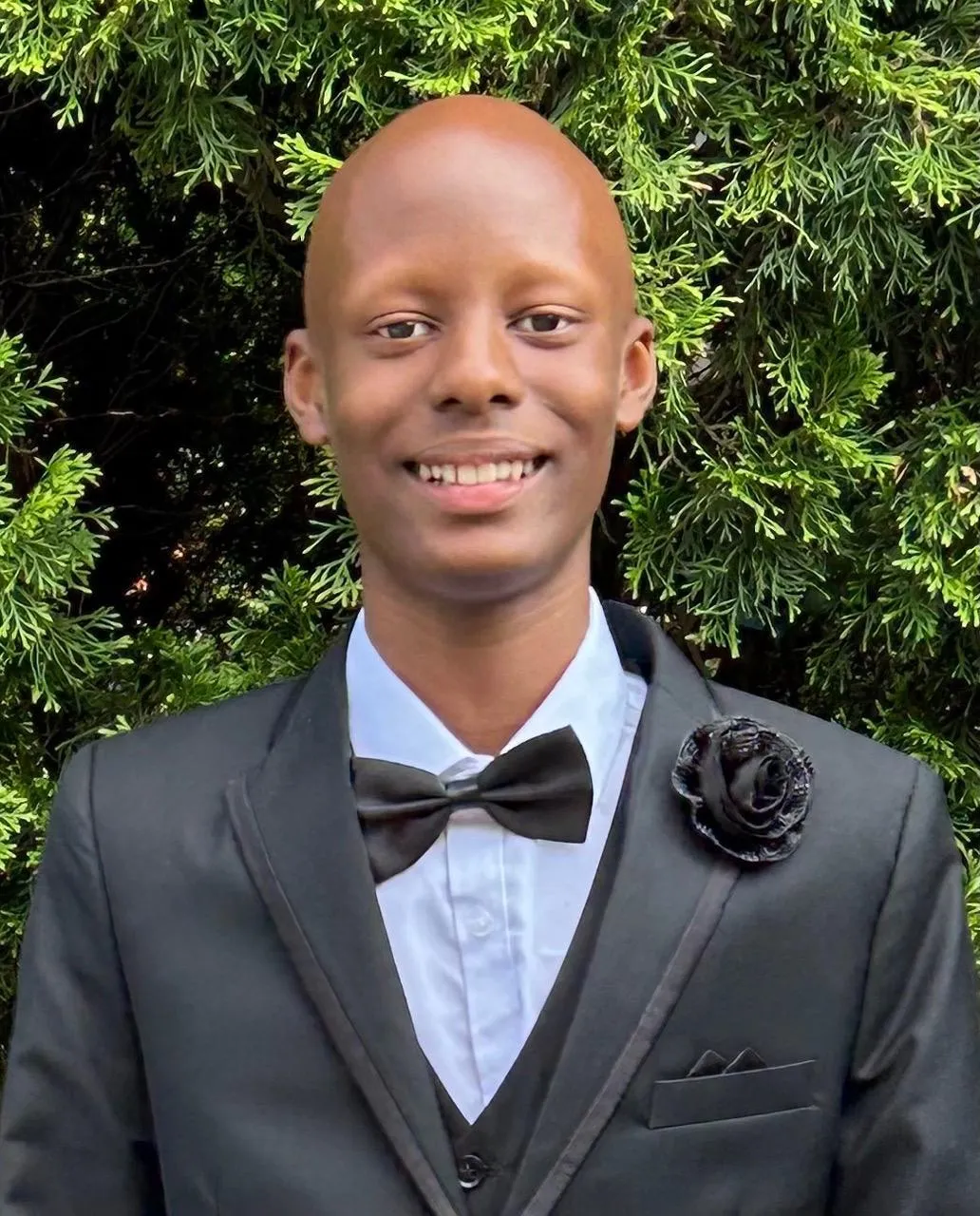
Sékou Ambroise
Futurist
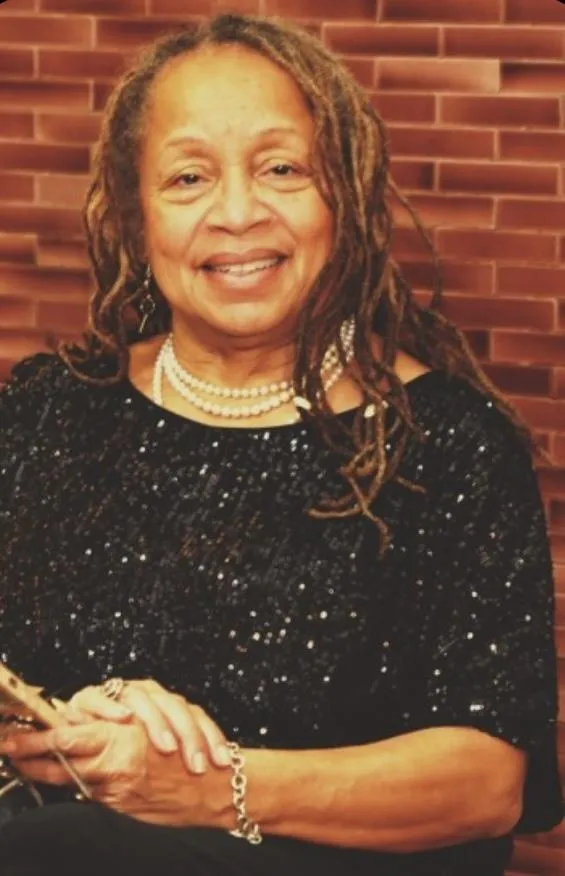
Betty Pierre
Elder
Why Now
At this critical moment in Haiti's history, reconnecting with the powerful symbolism and message of the national anthem is crucial. As we navigate contemporary challenges, this version by Raymond Moïse reminds us of our evolution, steadfastness, unity, and revolutionary spirit.
Many young Haitians may have lost touch with the anthem's deep meaning and historical context. By reclaiming this cultural treasure, we strengthen our collective identity and honor the legacy of our ancestors.
The anthem's message of unity, reverence, determination, self-sufficiency, and land stewardship is as relevant today as ever, offering inspiration and guidance for current and future generations. "We did it in 1791, we can do it again!"
Cultural Preservation
Building Unity; Building Resistance!
I carry the fire of my ancestors
Strengthening National Identity
Celebrating Haiti's Revolutionary Spirit!
I am an inheritor of freedom
Educating Younger Generation
Reclaiming Identity, purpose and direction!
Promoting Revolutionary legacy
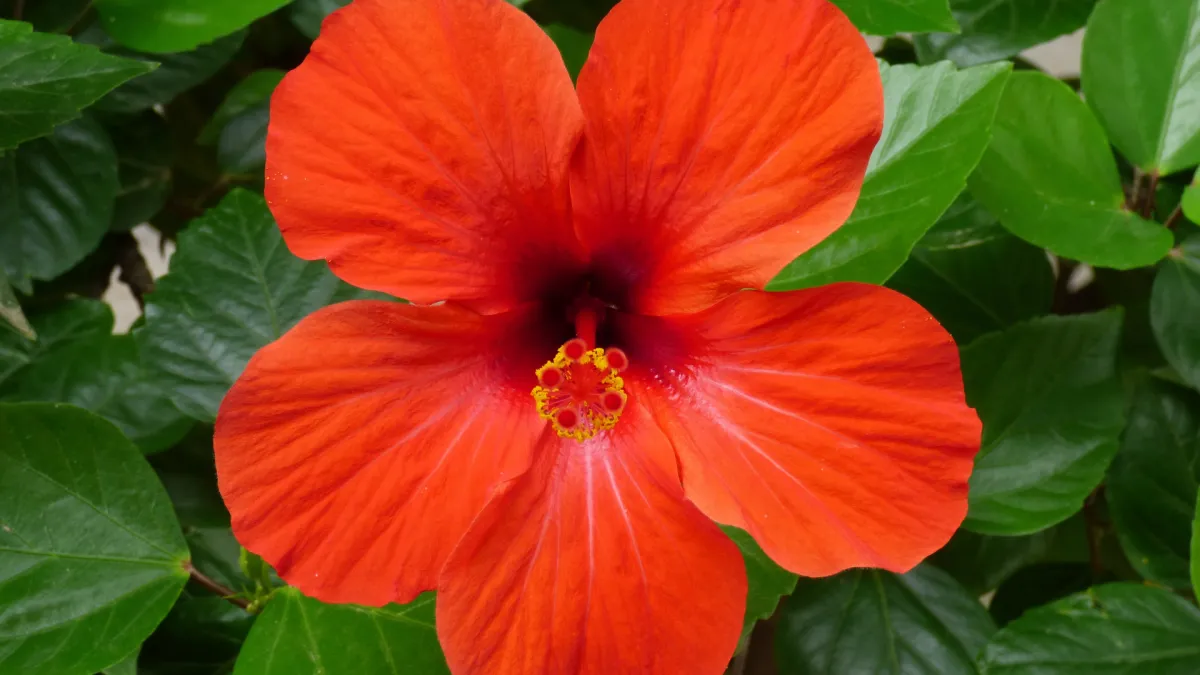
Program / Pwogram
International & Local
Participants
Local Participant
Registration
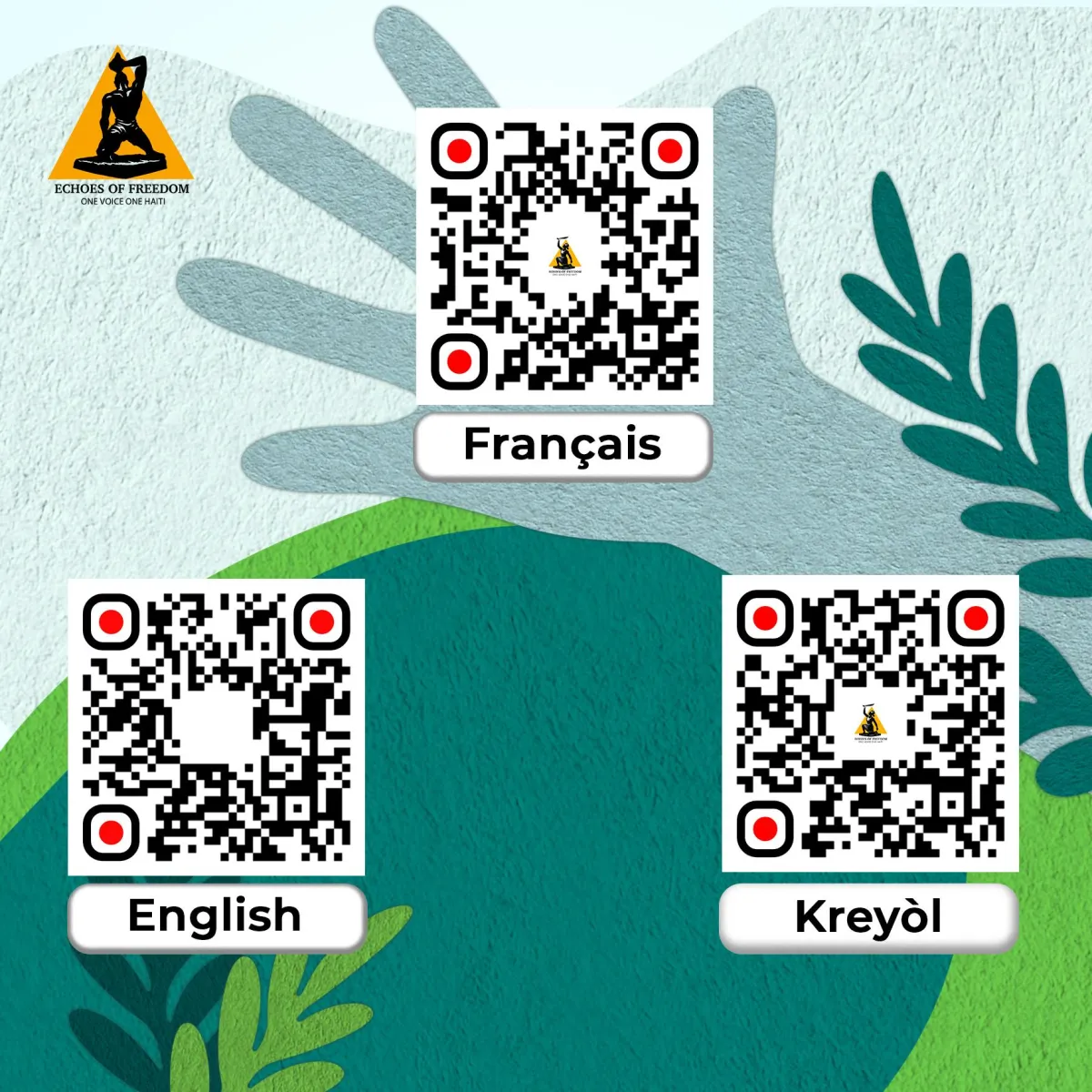
What Type of Haitian Are You?



Echoes of Freedom
Reclaiming the Haitian National Anthem
A cultural heritage initiative dedicated to preserving and promoting Haiti's revolutionary legacy.
Email: [email protected]
Phone: 917-748-1560
WhatsApp: 917-213-9802
Address: 89 Pulaski St, Suite 2 Brooklyn, NY 11206
